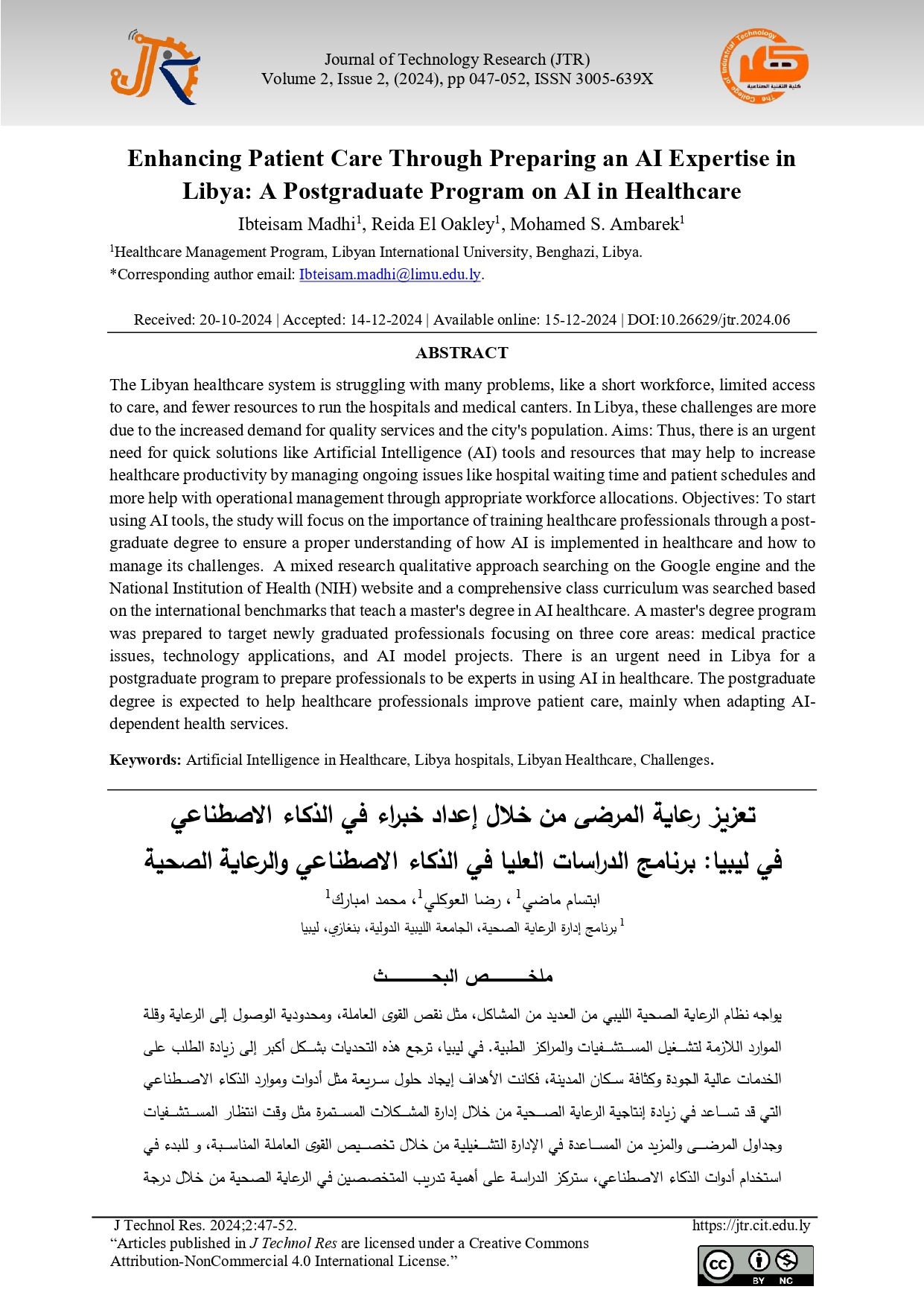Enhancing Patient Care Through Preparing an AI Expertise in Libya: A Postgraduate Program on AI in Healthcare
DOI:
https://doi.org/10.26629/jtr.2024.06Keywords:
Artificial Intelligence in Healthcare, Libya hospitals, Libyan Healthcare, ChallengesAbstract
The Libyan healthcare system is struggling with many problems, like a short workforce, limited access to care, and fewer resources to run the hospitals and medical canters. In Libya, these challenges are more due to the increased demand for quality services and the city's population. Aims: Thus, there is an urgent need for quick solutions like Artificial Intelligence (AI) tools and resources that may help to increase healthcare productivity by managing ongoing issues like hospital aiting time and patient schedules and more help with operational management through appropriate workforce allocations. Objectives: To start using AI tools, the study will focus on the importance of training healthcare professionals through a post graduate degree to ensure a proper understanding of how AI is implemented in healthcare and how to manage its challenges. A mixed research qualitative approach searching on the Google engine and the National Institution of Health (NIH) website and a comprehensive class curriculum was searched based on the international benchmarks that teach a master's degree in AI healthcare. A master's degree program was prepared to target newly graduated professionals focusing on three core areas: medical practice issues, technology applications, and AI model projects. There is an urgent need in Libya for a postgraduate program to prepare professionals to be experts in using AI in healthcare. The postgraduate degree is expected to help healthcare professionals improve patient care, mainly when adapting AI dependent health services.
Downloads

Downloads
Published
Issue
Section
License

This work is licensed under a Creative Commons Attribution-NonCommercial 4.0 International License.















